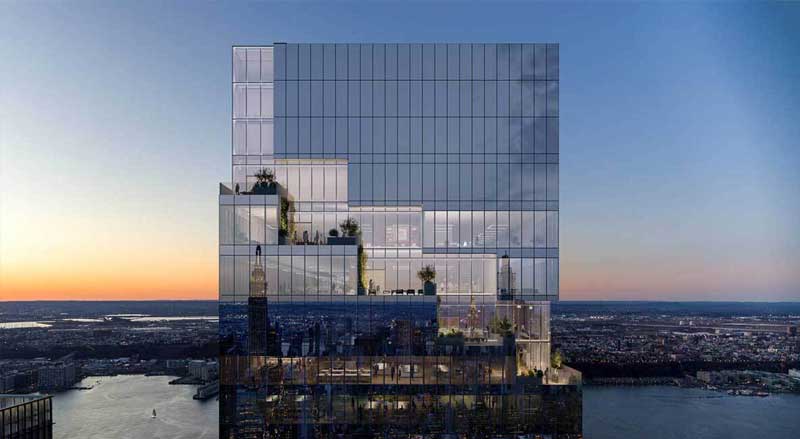In the hustle and bustle of urban life, it’s easy to overlook the importance of nature. Concrete jungles, while full of energy and life, can often lead to a disconnect from the natural world. Urban landscaping presents a vital remedy to this issue.
Incorporating greenery into our cities reaps many environmental, social, and economic benefits, making our urban landscapes more visually appealing and nurturing to the spirit.
The Importance of Urban Green Spaces
Urban green spaces are essential for fostering a sense of community and improving the overall quality of life.
With buildings dominating the skyline, adding intentional greenery can soften hardscapes and create a more inviting atmosphere. Green roofs and vertical gardens are excellent examples of utilizing often-overlooked areas to introduce nature into urban settings.
Pocket parks, strategically placed throughout cities, offer a much-needed respite in the concrete jungle. They allow residents to enjoy nature without traveling far from home.
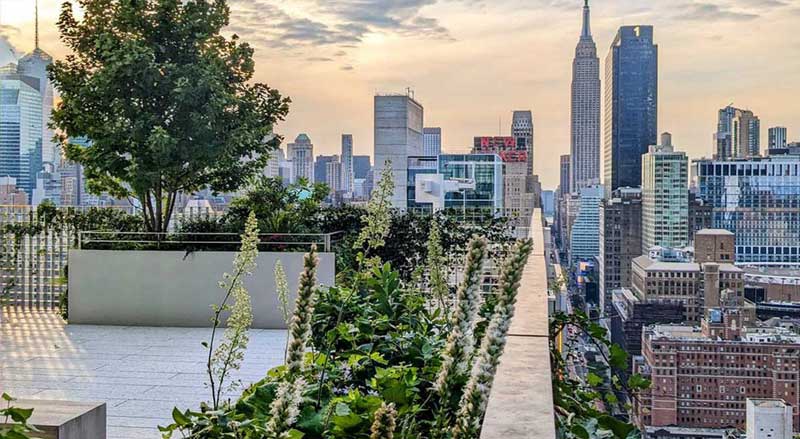
Environmental Benefits
One of the most significant advantages of urban green spaces is their positive impact on the environment.
Green roofs, green walls, and vertical gardens play a crucial role in combating urban heat islands by providing natural insulation and cooling effects. These green solutions can reduce energy consumption for heating and cooling buildings, ultimately lowering greenhouse gas emissions.
Additionally, urban green spaces help improve air quality by filtering pollutants and absorbing carbon dioxide. They also effectively manage stormwater, reducing runoff and the risk of flooding in cities. Plants and vegetation present in parks and green roofs absorb rainwater, which can alleviate stress on urban drainage systems and contribute to healthier ecosystems.
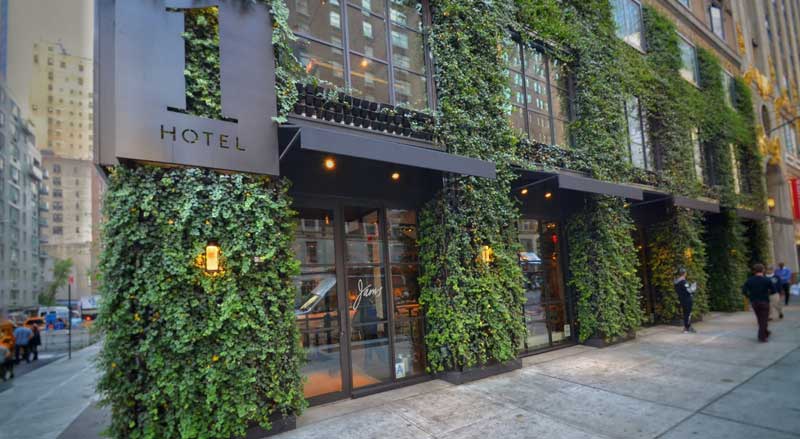
Social Benefits
Beyond environmental considerations, urban landscaping fosters a sense of community.
Green spaces serve as gathering areas, encouraging social interactions where neighbors can connect, children can play, and families can spend quality time together. These parks and gardens become the heart of neighborhoods, enhancing community spirit and belonging.
Researchers have found that access to green spaces is linked to improved mental health. Nature has a calming effect, reducing stress and anxiety levels.
Urban landscaping has the potential to create peaceful retreats where residents can escape from the chaos of city life, promoting mental well-being.
Also, well-designed landscapes can help to encourage physical activity, inviting people to walk, jog, or cycle—contributing to healthier lifestyles.
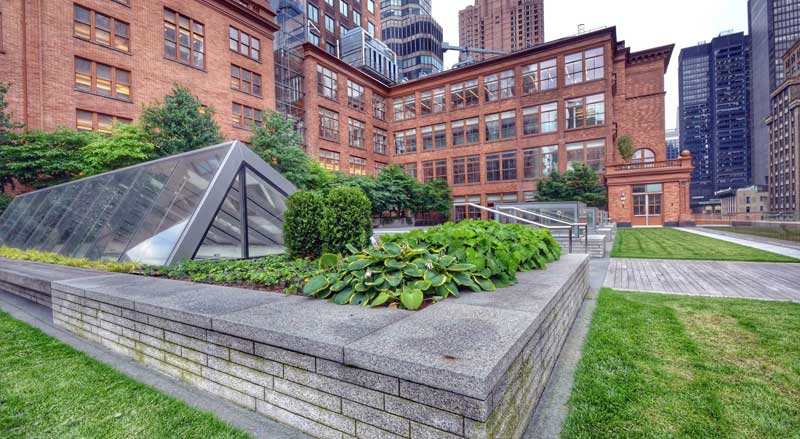
Economic Benefits
Investing in urban green spaces has proven to yield significant economic returns.
Properties near parks and green roofs generally have higher property values, as increased accessibility to green spaces is an attractive feature for potential buyers and renters.
Also, if cities prioritize green infrastructure, they can save on public spending to fix environmental issues.
Effective stormwater management through green roofs and parks can reduce stormwater runoff and lower municipal water treatment expenses. Plus, urban green areas can stimulate local economies by attracting businesses and tourism, particularly in well-maintained parks that host events or festivals.
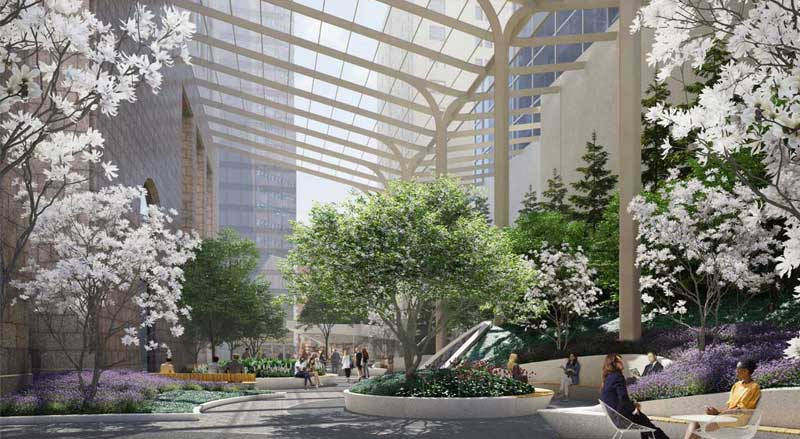
Urban Landscaping is a Sight for Sore Eyes
Urban areas often struggle with a lack of visual appeal, which can lead to feelings of alienation among residents.
Using green roofs and vertical gardens does more than just improve the scenery, they also offer homes to a variety of different species. This increases a city’s overall appeal, making it more welcoming and pleasant for both locals and visitors.
Urban planners can create unique, colorful environments by transforming drab buildings into green towers and utilizing wall space for vertical gardens.
As you walk through neighborhoods adorned with greenery, notice how these features make the cityscape feel more engaging, lively, and connected to nature.
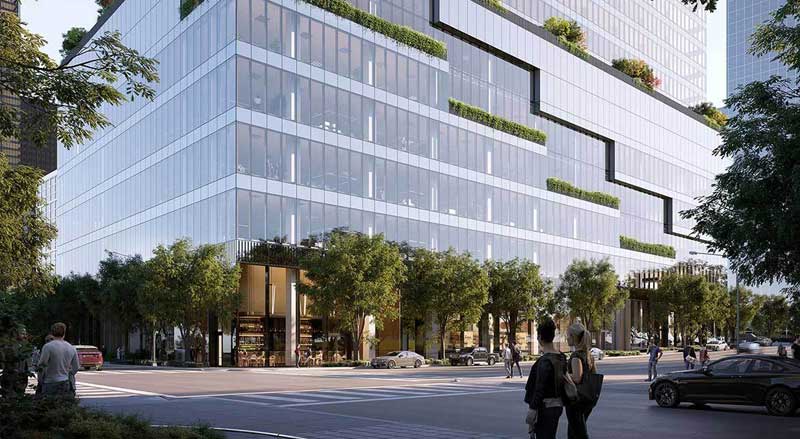
Urban Green Space Reduces Crime Rates
It might come as a surprise, but the presence of greenery can also decrease crime rates. Studies have shown that neighborhoods with more green spaces tend to experience lower crime levels.
Properly maintained parks promote social interaction within the community, build social unity, and inspire residents to appreciate and care for their surroundings. This sense of ownership often leads to increased vigilance and care for the area, deterring criminal activity.
Investing in urban landscaping further contributes to safety, reinforcing the idea that green spaces can be both beautiful and secure.
Innovative Urban Landscaping Solutions
As cities continue to grow and evolve, innovative landscaping solutions are emerging to address the challenges of urbanization.
Concepts such as vertical gardens, green roofs, and community gardens are gaining traction in densely populated areas. These designs not only maximize limited space but also promote sustainability by improving insulation and reducing energy costs.
Urban farming initiatives are another exciting development. These allow city dwellers to grow their own fresh produce in their neighborhoods. This promotes food security, reduces the carbon footprint caused by transporting food, and engages communities in sustainable practices.
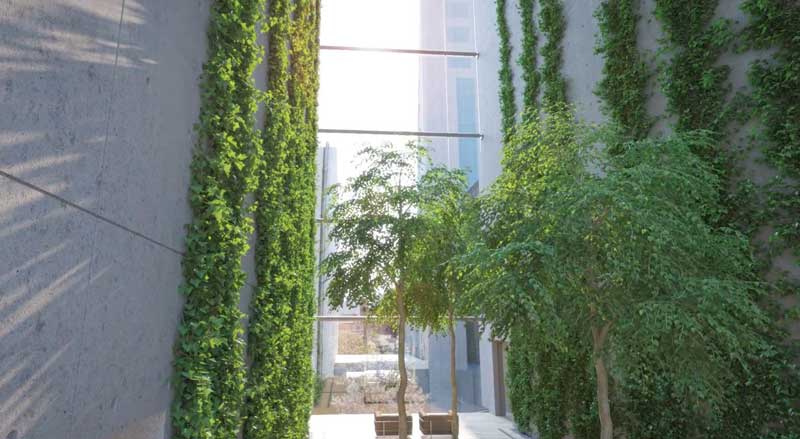
At Sponzilli Landscaping, we understand the transformative power of urban landscaping. Our team is dedicated to creating vibrant, sustainable, and inviting green spaces that enrich lives and elevate the urban experience.
Contact us today to learn more about our innovative landscaping solutions and how we can help bring nature into the heart of your city. Let’s work together to build a greener, healthier, and more connected urban environment.
*Each image showcased in this blog post represents the outstanding landscape work of Sponzilli Landscape Group.

